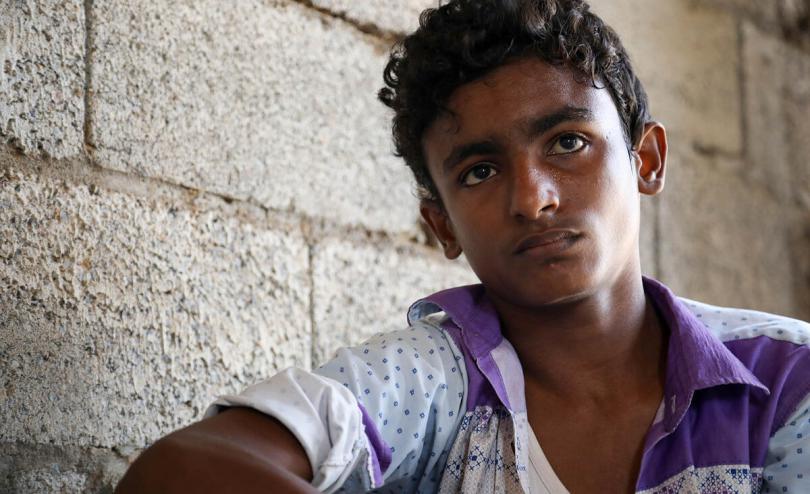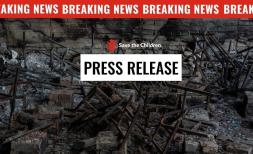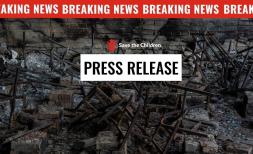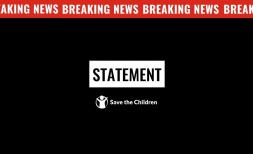OVER FIVE MILLION YEMENIS AT RISK OF LOSING ACCESS TO FOOD AND CLEAN WATER AS CORONAVIRUS SPREADS IN YEMEN

Survey* conducted in Yemen reveals impact of funding shortfalls as Pledging conference is held today.
Recent funding gaps and other challenges in Yemen will put an additional estimated 5.5 million people in the war-torn country at risk of losing access to life-saving aid, such as food, cash and clean water this year, 24 international humanitarian NGOs said ahead of the Virtual Yemen Pledging Conference.
With COVID-19 spreading rapidly in the country, the withdrawal of donor funds from the largest humanitarian crisis in the world will cost lives, these organisations warned.
The Pledging Conference is a donor event and an opportunity for aid agencies to ask donors for funds to cover essential activities in Yemen.
Ahead of the event, which is taking place today, a survey was conducted among INGOs working in Yemen to assess the impact on Yemeni civilians if funding shortfalls persist. The nine NGOs which responded to the survey expect a combined drop in funding of 82.5 million dollars compared to 2019, including a sharp reduction in the means to support the already collapsing health sector – affecting an estimated total of 5.5 million people. This number gives us an indication of what the funding shortfall would mean for the wider humanitarian response but the impact on the sector is thought to be even higher with millions more likely to lose out.
It could reduce health services such as mobile clinics as well as the organisations’ ability to provide community water systems, threatening a spike in cholera and the fight against the spread of COVID-19.
This will also push vulnerable communities closer to starvation when already 8.5 million people are having their food aid halved in the midst of lockdowns and job losses. Almost 1.5 million families in Yemen depend on food assistance to survive,[1] many of whom have already been impacted by the scale-down of the World Food Programme’s (WFP) monthly food distributions. Without an urgent injection of funds some organizations will be forced to stop all support for agriculture and livelihoods across the country. Currently, 20.1 million people in Yemen are in need of food assistance, and half of all families are buying food on credit[2].
Ehsan from Sana’a in northern Yemen receives humanitarian aid such as food and water. He says:
“I’m a disabled man and cannot work. I depend on the aid that I receive... If coronavirus doesn’t kill us, we will starve to death inside our houses. Millions of Yemenis will still need food aid if coronavirus hits Yemen.”
Ensuring the supply of necessary goods in Yemen is logistically challenging and access issues have been exacerbated by the COVID-19 outbreak: owing to quarantine measures required in seaports, humanitarian supplies through Hodeidah and Aden have been cut by two thirds.
The undersigned NGOs warned that the impact of the current funding gaps, along with the ongoing violence and the effect of COVID-19 preventive measures, will be disastrous for Yemeni children and their families.
“This conference is a critical opportunity to save thousands of lives and turn things around, but we need to act now,” said the organisations. “The largest humanitarian crisis in the world is now compounded by an unprecedented pandemic. Donors must increase their funding for humanitarian response in Yemen, with priority given to critical life-saving aid, such as food and cash, health services, water, sanitation and hygiene awareness and protection. If funding is critical, peace is the only way to guarantee Yemen’s future. We call on all governments at the conference to apply pressure on warring parties to implement a nationwide ceasefire immediately and restore peace talks."
Notes to Editors:
*In the lead-up to the Yemen pledging conference, a rapid survey was conducted among operational INGOs managing humanitarian programs across Yemen in order to demonstrate the likely negative outcomes for the Yemeni people if funding shortfalls persist and donors continue to withhold assistance. Nine agencies responded, helping to provide an indication of the funding challenges affecting the wider NGO community.
SIGNATORY AGENCIES:
- ACTED
- Action Contre la Faim (ACF)
- ADRA
- CARE
- Danish Refugee Council (DRC)
- Diakonie Katastrophenhilfe
- Global Communities
- Human Appeal
- International Rescue Committee (IRC)
- INTERSOS
- Islamic Relief
- Médecins du Monde (MdM)
- Mercy Corps
- Muslim Hands
- Norwegian Refuge Council (NRC)
- Oxfam
- Polish Humanitarian Action (PHA)
- Première Urgence- Aide Médicale Internationale (PU-AMI)
- Relief International
- Save the Children
- Search for Common Ground
- Solidarites
- War Child UK
- ZOA
To support Save the Children’s global COVID-19 emergency appeal, click here.
Spokespeople are available. For more information or to arrange an interview contact:
Randa Ghazy
r.ghazy@savethechildren.org.uk
+44 74 29980 655 (London)
Out-of-hours
Media@savethechildren.org.uk
+44 7831 650409 (London)
[1] Humanitarian Response Plan extension – June-December 2020
[2] World Food Programme




